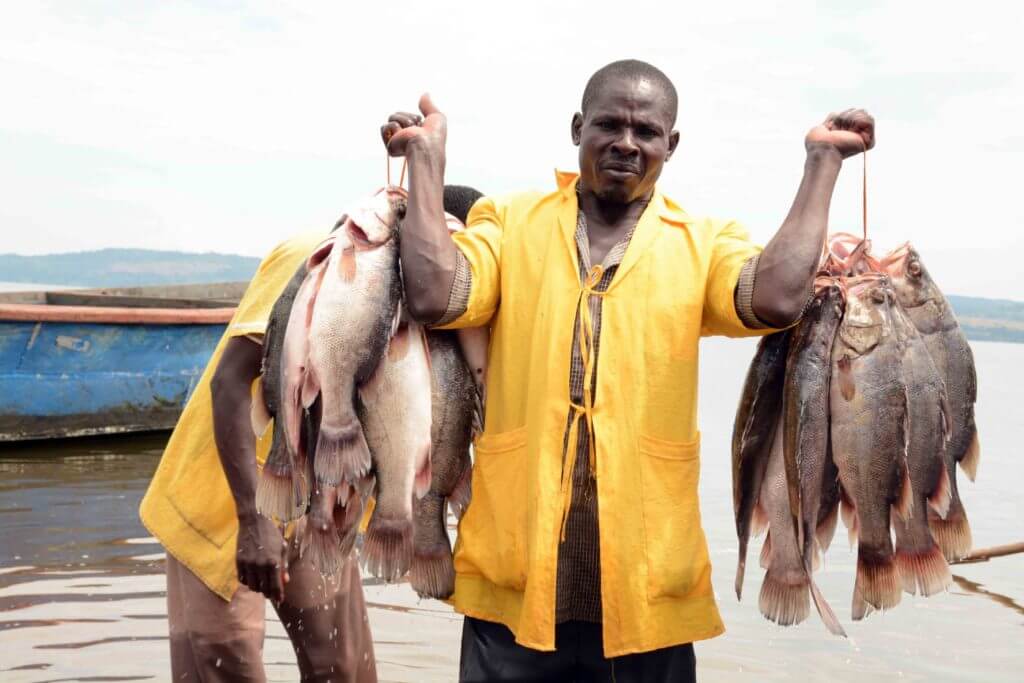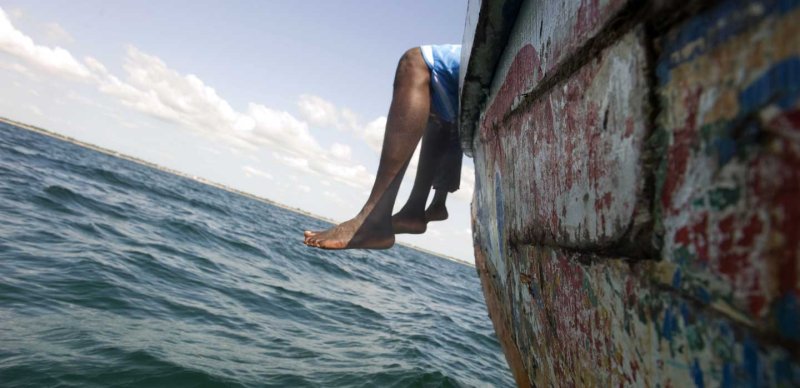The global marine biotechnology market is expected to grow by US$2.5 billion between 2020-2024, progressing at a compound annual growth rate (CAGR) of over 8 percent during the forecast period, according to Technavio, a leading global technology research and advisory company.
African nations have the potential to be the new incubators of marine biotechnology, said Dr. Ian Ralby, an expert in maritime law, strategy and the development of the blue economy.
“Mauritius has pioneered blue economy technology activity,” Ralby said in a YouTube presentation. “Kenya also has initiatives taking hold, for instance, inclusive women-focused initiatives developing seaweed as an economic driver. Trying out new, environmentally friendly technologies could be a fantastic way for Africa to have a stake in this new industry.”
Other experts concur that Africa’s aquatic resources can become an important source of biomedical organisms for fighting diseases and could offer an alternative to the use of traditional fossil fuels.
“Marine biotechnology will open new doors for the exploration of Africa’s ocean and lake resources,” said Tanzanian marine scientist Fred Mahanga. “It will not only make it possible to manufacture products in the biological and pharmaceutical sectors but also could help Africa solve problems of food shortage, poverty and unemployment.”
He noted that the COVID-19 pandemic “demonstrated the need for Africa to bioprospect and develop and invest in its own pharmaceutical, biological and nutraceutical capabilities.”
African leaders are taking note. In Africa’s agenda 2063 — the continent’s main policy blueprint for socio-economic development — the blue economy is viewed as the catalyst for achieving socio-economic transformation. Its development is also prioritized in the 2050 Africa Integrated Maritime Strategy as the continent’s new frontier for resurgence.
While the continent’s bioprospecting economy is still largely operating at a low ebb, there has been progress in South Africa, Namibia and Nigeria, among others.
“The opportunities to exploit in the sector are abundant and soon the continent will be an epicenter of blue economy discussions,” Ralby predicted. “African governments ought to consider scaling up investments in sectors such as molecular aquaculture and renewable energy as their populations grow.”
In recent years, Seychelles, Cape Verde, Kenya, Madagascar, Comoros, Mauritius, Morocco, South Africa, Nigeria, Angola, Namibia, Ghana, Tunisia and Tanzania have shown commitment to the sustainable development of seafood sectors and marine biotechnology, which is the creation of products and processes from marine organisms through the application of biotechnology, molecular and cell biology and bioinformatics.

Seychelles, which has highlighted the blue economy as an important centerpiece of its National Development Strategy, last year got an $800,000 grant from the African Development Bank to develop its marine biotechnology sector, among other blue economy sub-sectors. In the months that followed, several Seychellois micro, small and medium enterprises focused on marine biotechnology were established and a biotechnology entrepreneurship development strategy was developed.
Due to its high biodiversity and extensive marine resources, marine biotechnology is recognized as having potential to expand the country’s economic development, according to the report Seychelles Blue Economy: Strategic Policy Framework and Roadmap Charting the future (2018-2030).
Mauritius, which plans to double its blue GDP to 20 percent in the medium term, is also joining in as the global market for marine biotechnology grows. Mauritius is looking to use marine biotechnology to tackle climate change and its negative impacts on the marine environment through the production of bioenergy. It plans to provide novel biocatalysts for second-generation fuels or produce algae to build up a third generation of biofuels.
Morocco, with a coastline that spans more than 3,500 kilometers, has grasped the economic opportunity through an initiative to sustainably harvest seaweed. The Kingdom also created the Bioxparc, which comprises an international network of technology parks and an innovative digital platform to encourage resource sharing among players in the food, medical and agricultural biotechnology sectors. And last year, the Kingdom signed an administration agreement on cooperation in marine research and innovation with the European Union.
Researcher Dimitri Pag-yendu Yentchare argued in a recent paper that it is possible for African states to successfully harness the benefits of blue biotechnology. He submitted that it is time for African nations to contribute to their sustainable development by taking a more active part in the direct exploitation of marine genetic resources.
Africa has all the ingredients to establish a marine biotechnology sector and many pharmaceutical solutions could be found in its seas and oceans, observed Josefa Sacko, the African Union Commissioner for agriculture, rural development, blue economy and sustainable environment, at the recent blue economy stakeholder’s workshop in Windhoek, Namibia.
But Africa can only realize the projected blue economy values of $405 billion and 57 billion jobs by 2030 through increased investments in research, innovative capacity building and infrastructure development, say many economic analysts.
Though the continent does have some research centers, including the Nigerian Institute of Oceanography and Marine Research, the National Institute of Fisheries Research in Morocco and an internationally recognized center for the study of aquatic biodiversity in South Africa, experts say more investment is needed.
Yentchare posits that the African Development Bank should support marine research development, youth training and more serious considerations of intellectual property rights, which are a core issue in the exploration of marine genetic resources. He also proposed that the Bank construct adequate infrastructure to slow the continent’s scientific brain drain.
Richard Wetaya is a multimedia journalist from Kampala, Uganda. Find Richard on Twitter @rwetaya
A version of this article was originally posted at the Cornell Alliance for Science and is reposted here with permission. The Cornell Alliance for Science can be found on Twitter @ScienceAlly































